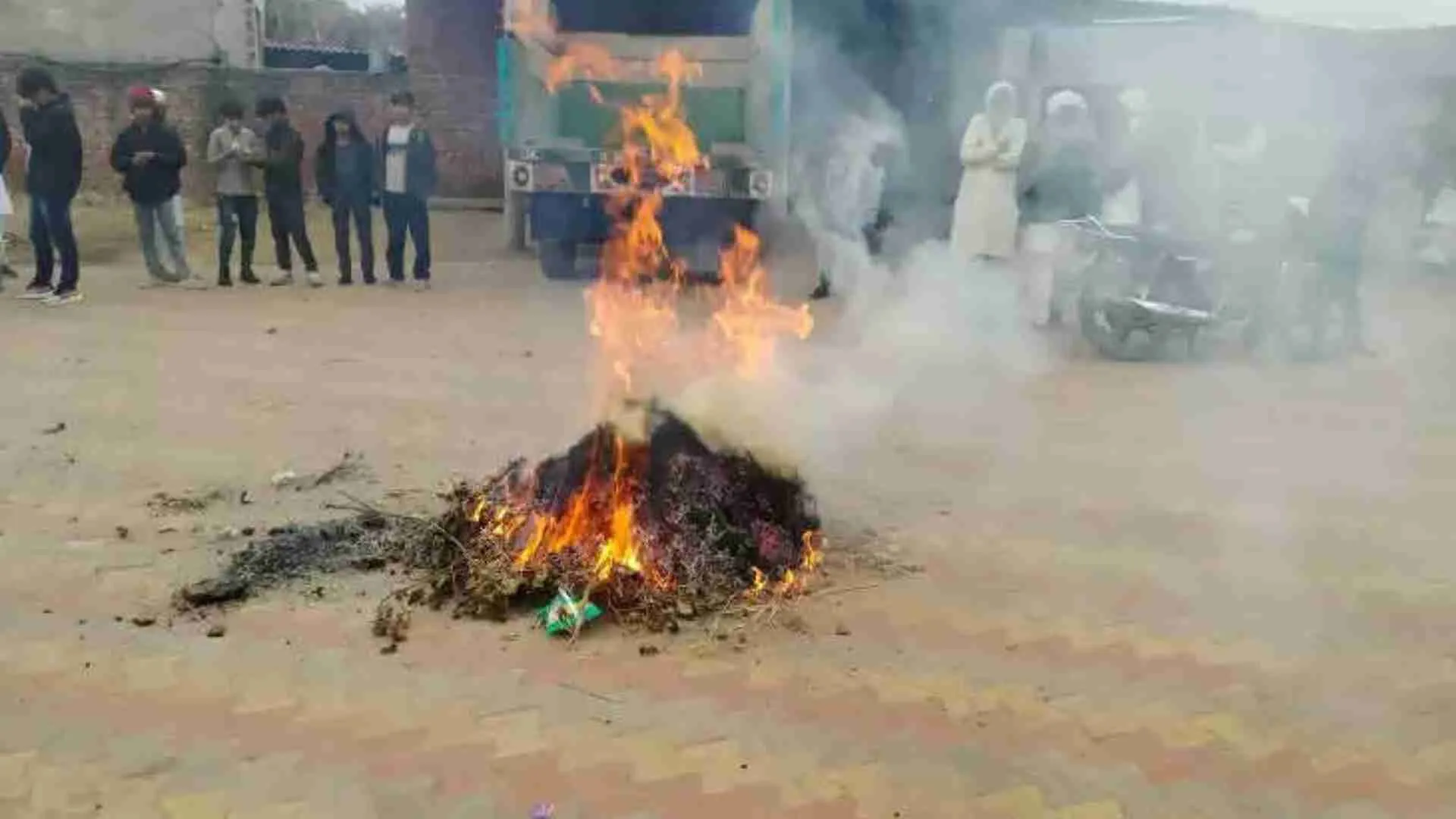BJP’s candidate from Faridkot seat, Hans Raj Hans shed light on the question of why the BJP is facing significant condemnation in the Faridkot seat.
In a conversation with The Daily Guardian, he revealed that the opposition is funneling substantial funds to certain individuals disguised as farmer unions to disparage him and prevent his message from reaching the general populace. This tactic, he explained, stems from their fear that he will debunk their false narrative. Moreover, he emphasized that the Malwa region holds immense political significance in Punjab, as it has historically been a stronghold. By contesting in this area, Hans aims to challenge the erroneous perception that the BJP is opposed to Punjab or Sikh interests. They worry that if the BJP secures this seat, winning Punjab in 2027 would become much easier for them, given that this seat is the epicenter of Punjab politics.
Historically, Faridkot was a stronghold of the Shiromani Akali Dal (SAD). However, a significant political shift occurred in the 2014 Lok Sabha polls, favoring the Aam Aadmi Party (AAP), followed by the Congress in the 2019 elections. Nevertheless, the Congress faces an uphill battle in retaining the seat this time, compounded by the absence of key senior leaders in the party nominee’s campaign.
Spanning four districts—Faridkot, Moga, Muktsar, and Bathinda—the constituency comprises nine assembly segments: Moga, Dharamkot, Nihal Singh Wala, Baghapurana, Faridkot, Kotkapura, Jaitu, Gidderbaha, and Rampura Phul. Presently, eight of these segments are represented by the AAP, while the SAD, vying for resurgence, has fielded a candidate from a local Taksali Akali family.
In the electoral arena, the AAP has nominated actor-singer Karamjit Anmol, while the Bharatiya Janata Party (BJP) has transferred singer-turned-politician Hans Raj Hans from the North-West Delhi Lok Sabha segment to Faridkot. The SAD, meanwhile, is banking on Rajwinder Singh, the son of three-time Dharamkot MLA Sheetal Singh and grandson of former cabinet minister Gurdev Badal. On the other hand, the Congress has pinned its hopes on Amarjit Kaur Sahoke, who defected from the SAD.
Adding complexity to the race is Sarabjeet Singh Khalsa, an Independent candidate with a ‘Panthic’ appeal and the son of former prime minister Indira Gandhi’s assassin, Beant Singh. Sarabjeet’s previous electoral endeavors in Bathinda garnered significant support, further diversifying the competition.
Additionally, the Bahujan Samaj Party (BSP) has fielded Gurbaksh Singh Chouhan, while the SAD (A) has put forward Baldev Singh Gagra.
Over the years, the Faridkot Lok Sabha constituency has been represented by numerous prominent leaders, reflecting its political significance. Former chief minister and SAD patriarch Parkash Singh Badal secured victory here after its formation in 1977, followed by other notable figures such as Jagdev Singh Khudian and SAD president Sukhbir Singh Badal.
The conversation took a somber turn as Hans recounted a disturbing incident captured on video, evoking parallels with a tragic event abroad. The haunting image of a person suffocating under the weight of another’s knee mirrored the treatment endured by Hans and his children during their campaign in Faridkot.
Expressing his anguish, Hans revealed his reluctance to expose his loved ones to such hostility. He lamented the unjust treatment they faced at the hands of those who viewed them with suspicion, despite his efforts to engage with them respectfully.
Reflecting on his interactions with the people of Faridkot, Hans shared moments of warmth and hospitality, particularly in the fakir places he visited. These encounters served as a source of solace amidst the political tumult, reaffirming his belief in the inherent goodness of humanity.
As a Sufi singer deeply rooted in the spiritual legacy of Baba Farid and the region’s history, Hans felt a profound sense of duty towards Faridkot. He perceived his candidacy as an opportunity to effect positive change, uplift the marginalized, and address pressing issues such as healthcare and substance abuse.
However, Hans encountered fierce opposition from political adversaries, notably the Akali party, intent on maintaining their stronghold in the region at all costs. Their relentless efforts to discredit him through false propaganda and intimidation tactics only bolstered his resolve to challenge the status quo.
Undeterred by the obstacles, Hans remained steadfast in his commitment to the people of Faridkot. He refused to be silenced or intimidated, drawing strength from his convictions and the unwavering support of local residents who saw through the veil of deception.
With unwavering determination, Hans pledged to continue his campaign, advocating for the welfare of Faridkot and its people. He vowed to fight for justice, equality, and progress, cognizant of the challenges that lie ahead but steadfast in his belief that a brighter future awaited Faridkot under his stewardship

















